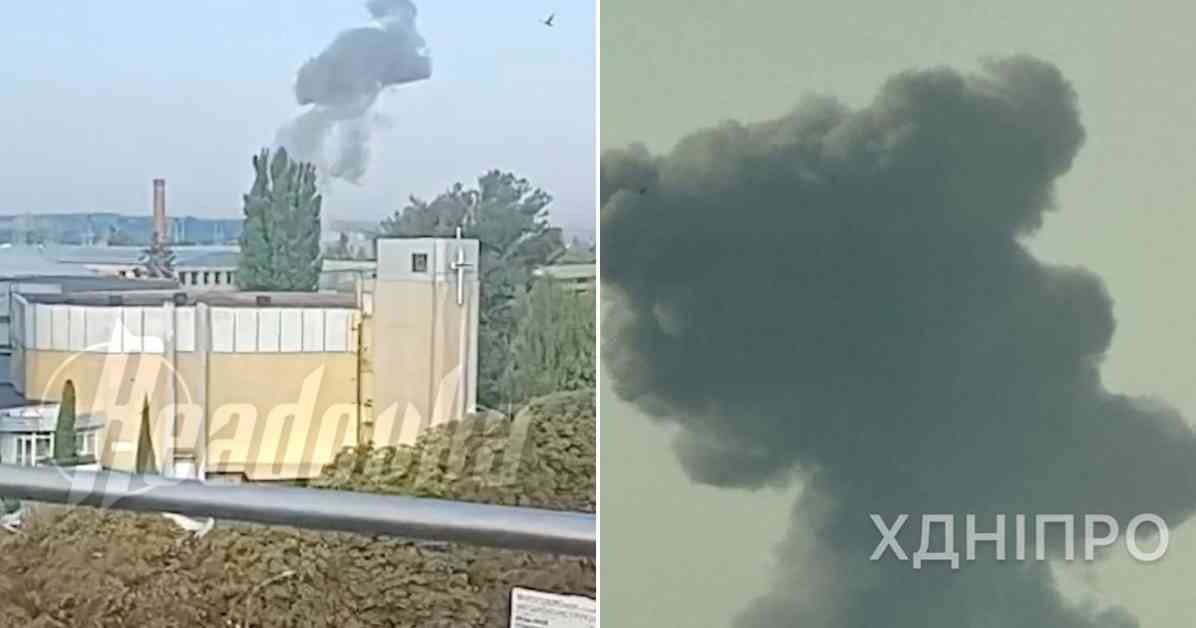Vladimir Putin has launched his most devastating missile strike yet on Ukraine, putting the entire country on high alert. The attack, which is the largest since the 2022 invasion, has caused widespread destruction in multiple regions, including the capital city of Kyiv.
The missile strikes have been described as ‘raining down’ on Ukraine, with explosions rocking Kyiv and eight other regions spanning from Kharkiv in the east to Lviv near the Polish border in the west. The impact of the attack has been felt across the country, with reports of a residential building being destroyed in the western city of Lutsk, far from the Russian border.
This aggressive move by Putin is seen as a response to Ukraine’s recent military advances into Russian territory, with Ukrainian troops making significant progress into enemy territory in an effort to shift the balance of power in future negotiations. Despite blowing up key bridges in Kursk to disrupt Russian military supply lines, the latest attack came in the form of air strikes carried out by Tu-22M3 and Tu-95 strategic bombers targeting Kyiv.
The aftermath of the missile strike has left parts of Ukraine plunged into darkness, with the national electricity operator Ukrenergo implementing emergency blackouts to conserve power after Kryvyi Rih, Odesa, and the capital region experienced power outages. Andriy Yermak, head of Ukrainian president Volodymyr Zelensky’s office, has vowed that the destruction of Ukraine’s energy industry will have severe consequences for Russia’s infrastructure.
The devastating impact of the missile strike was tragically highlighted by the death of former British soldier Ryan Evans, who was killed when a missile struck his hotel in Kramatorsk. Evans, who was working as a safety advisor for news agency Reuters, was well-respected for his expertise in ensuring the safety of journalists in conflict zones. Two journalists were also injured in the explosion, with one in critical condition.
Putin’s rage over the first invasion of Russian territory since World War II has been palpable, with his US ambassador Anatoly Antonov stating that those responsible for the events in the Kursk Region will face severe punishment. The escalation of violence in Ukraine has raised concerns about the potential for further clashes and the impact on civilians caught in the crossfire.
As the situation in Ukraine continues to deteriorate, the international community is closely monitoring developments and working towards a peaceful resolution to the conflict. The tragic loss of life and destruction caused by the missile strike serve as a stark reminder of the human cost of war and the urgent need for diplomacy and dialogue to prevent further bloodshed.
Impact on Ukrainian Society
The missile strike on Ukraine has had a profound impact on society, with civilians bearing the brunt of the violence. The destruction of residential buildings, power outages, and loss of life have left many Ukrainians fearful for their safety and uncertain about the future. The targeting of key infrastructure, such as energy facilities, has further exacerbated the humanitarian crisis in the country.
International Response
The international community has condemned Putin’s aggressive actions in Ukraine and called for an immediate ceasefire to prevent further loss of life. World leaders have expressed solidarity with the Ukrainian people and called for a diplomatic solution to the conflict. The United Nations and other humanitarian organizations are working to provide aid and support to those affected by the violence.
Future Outlook
As the conflict in Ukraine escalates, the outlook for peace remains uncertain. The continued aggression from Russia and the resilience of Ukrainian forces have created a volatile and dangerous situation. The need for a diplomatic solution to end the conflict and prevent further bloodshed has never been more urgent. The world is watching closely as events unfold in Ukraine, hoping for a resolution that will bring peace and stability to the region.












